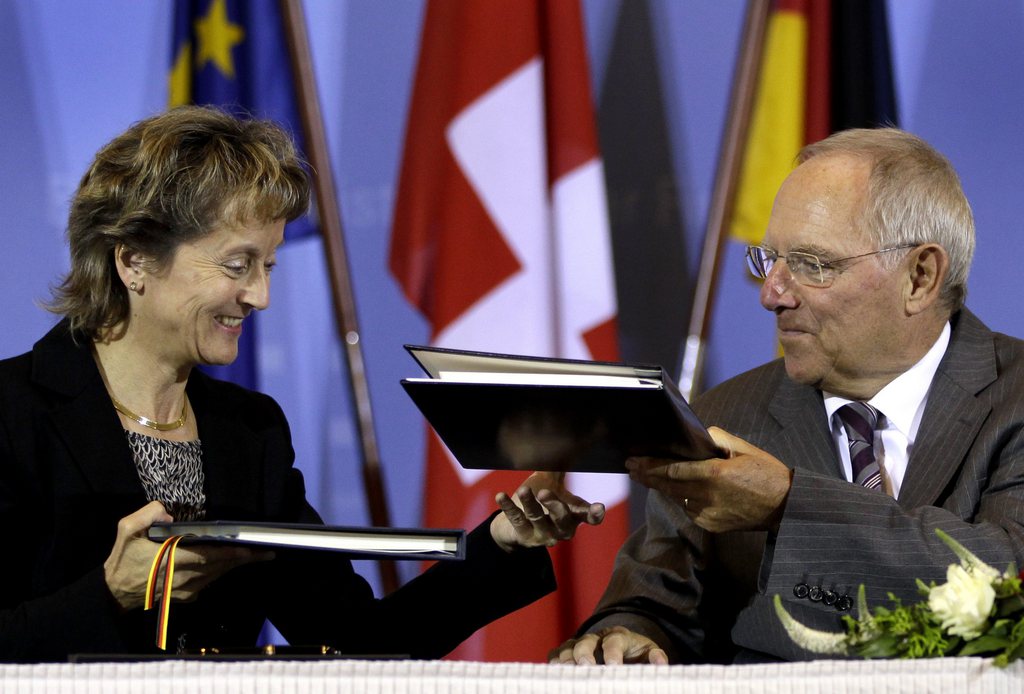Switzerland enters top ten of most globalised nations

Switzerland has climbed two places to become the ninth most-globalised country in the world, according to a study by the KOF Swiss Economic Institute, part of the federal institute of technology ETH Zurich.
The latest KOF Globalisation IndexExternal link, published on Thursday, reflects the degree of economic, social and political globalisation in 187 countries in 2012.
Switzerland did particularly well regarding social globalisation, coming fourth behind Singapore, Ireland and Austria. This was measured by assessing cross-border personal contacts in the form of telephone calls, letters and tourist flows as well as the size of the foreign population.
Cross-border information flows were also measured in terms of access to the internet, television and foreign media products. In addition, the index attempted to measure cultural affinity to the global mainstream by means of the number of McDonald’s and Ikea branches as well as book imports and exports in relation to GDP.
Overall, Ireland, which had also been top of the index the previous year, was the most globalised country in the world in 2012, followed by the Netherlands and Belgium who switched places from 2011. Austria came fourth, followed by Singapore. Sweden advanced one place to sixth, relegating Denmark to seventh. Portugal remained in eighth place.
Due to the size of their markets, the world’s major economies are more inward-looking and tend to occupy lower ranks on the Globalisation Index. The world’s largest economy, the United States, ranks 35 (down two places), China 75 (down three), Japan 54 (up five) and Germany 27 (down three).
The lower end of the index showed little movement: the least globalised countries in the world are the Solomon Islands, Somalia, Kiribati, Laos and Eritrea (in ascending order).
Small growth
The survey noted that globalisation in 2012 rose very little compared with the previous year.
The OECD (Organisation for Economic Co-operation and Development) countries even recorded a slight decline in the degree of globalisation. In contrast, the index for South and East Asia as well as Sub-Saharan Africa rose to some extent. In all other regions, globalisation declined in 2012.
The survey’s authors pointed out that 2012 was dominated by the aftermath of the Arab Spring as the Muslim Brotherhood took over Egypt and the civil war in Syria intensified. In the eurozone, the debt crisis came to a head and forced the European Central Bank to take all necessary steps to ensure the survival of the euro.
Methodology
The current KOF Globalisation Index, which includes 23 variables, covers 187 countries and relates to the period 1970 to 2012.
The index comprises an economic, social and political component and measures globalisation on a scale from 1 to 100.
The data on which the index is based were updated for recent years using the original sources. The new data cannot be compared with last year’s KOF Index since the database was also updated and recalculated for all previous years. All comparisons with previous years that appear in the above text are based on the new database.
(Source: KOF)

In compliance with the JTI standards
More: SWI swissinfo.ch certified by the Journalism Trust Initiative


You can find an overview of ongoing debates with our journalists here . Please join us!
If you want to start a conversation about a topic raised in this article or want to report factual errors, email us at english@swissinfo.ch.